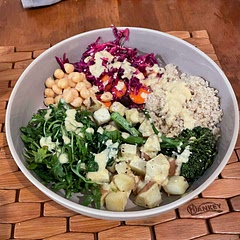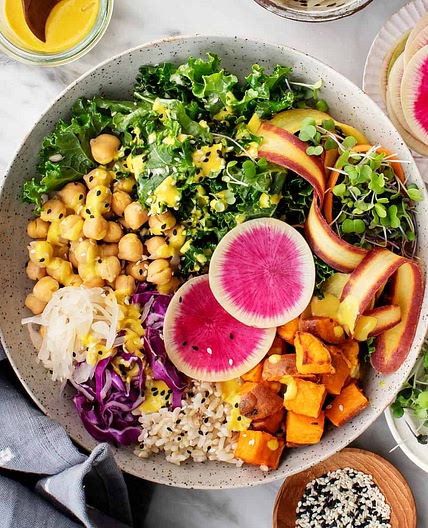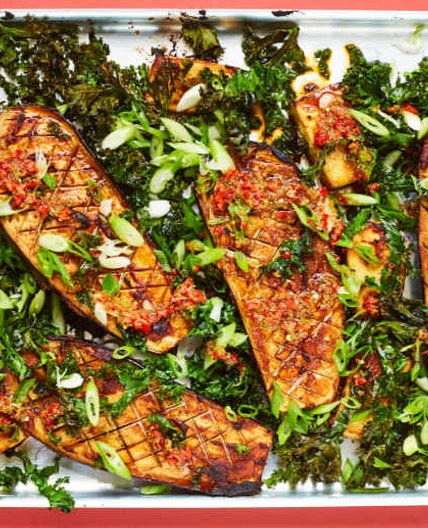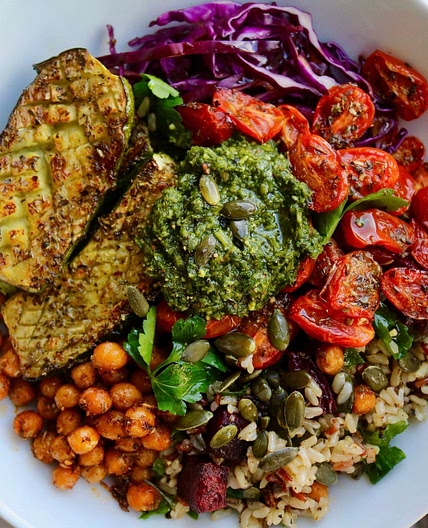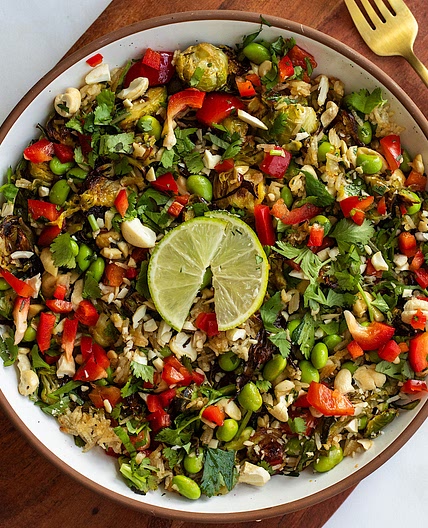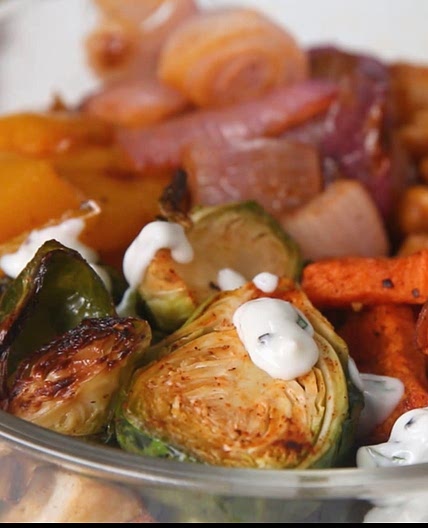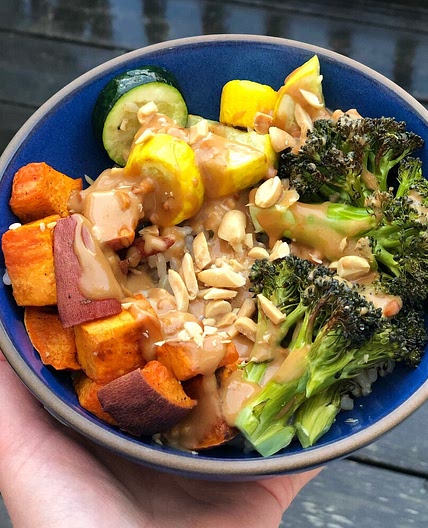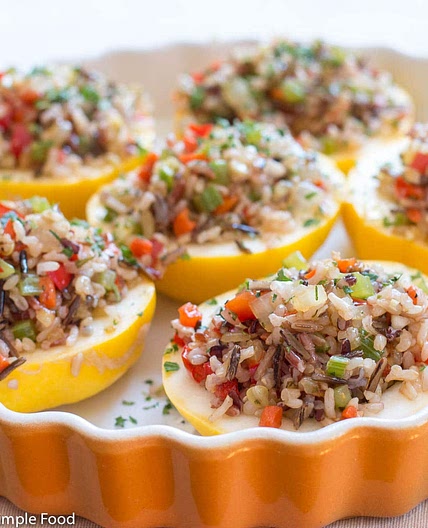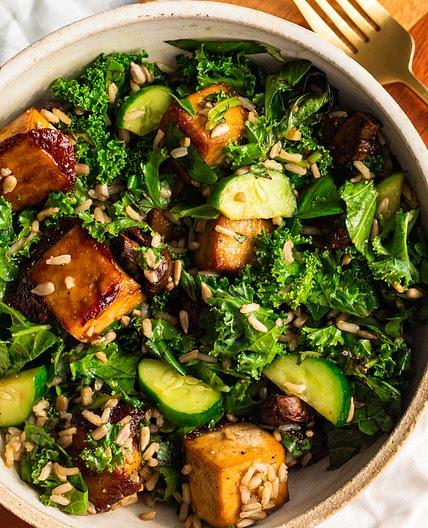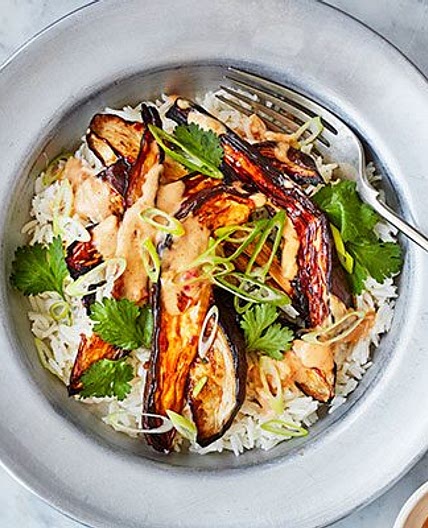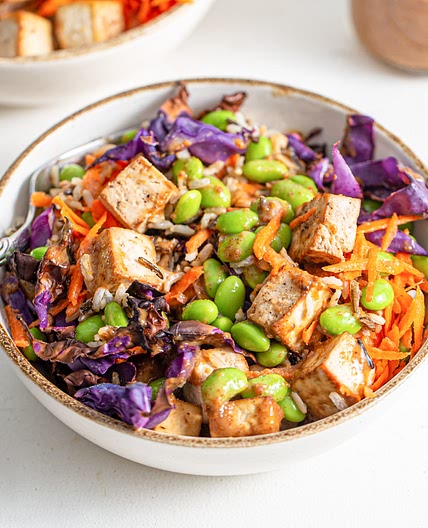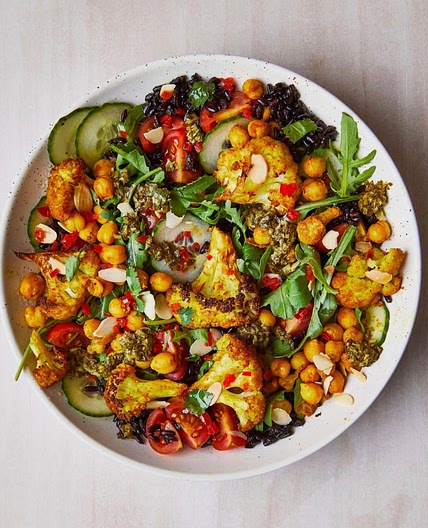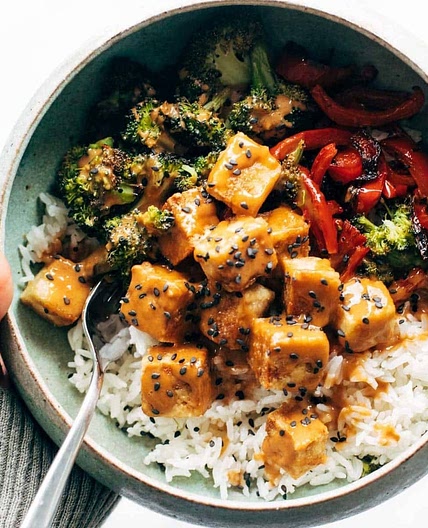
1/3

2/3

3/3
91%
4
By Nomad Chef
Best Buddha Bowl
6 steps
Prep:15minCook:20min
Where did the name ‘Buddha Bowl’ come from, anyway? If you’ve been on Instagram in the last 5 years, chances are you’ve seen these colorful bowls, packed with plant-based goodness like grains, legumes, steamed and raw veggies, and flavorful sauces. According to a 2017 Epicurious article by Katherine Sacks, the name could come from how Buddha collected alms, using a large bowl to gather small bits of food that the residents of whatever village he was staying in could afford to share.
Updated at: Thu, 17 Aug 2023 12:02:01 GMT
Nutrition balance score
Great
Glycemic Index
45
Low
Glycemic Load
33
High
Nutrition per serving
Calories475.4 kcal (24%)
Total Fat15 g (21%)
Carbs72.4 g (28%)
Sugars12.2 g (14%)
Protein21.6 g (43%)
Sodium637.8 mg (32%)
Fiber27.6 g (99%)
% Daily Values based on a 2,000 calorie diet
Ingredients
4 servings
Instructions
Step 1
Preheat the oven to 400°F and line a large baking sheet with parchment paper.
Step 2
Toss the sweet potatoes with olive oil, salt, and pepper, and spread onto the baking sheet. Roast for 20 minutes, or until golden brown.
Step 3
Thinly slice the radish into rounds (this is best done on a mandoline), and use a vegetable peeler to peel the carrots into ribbons.
Step 4
Toss the radish slices, carrots, and shredded cabbage with a squeeze of lemon. Set aside.
Step 5
Place the kale leaves into a large bowl and toss with a squeeze of lemon and a few pinches of salt. Use your hands to massage the leaves until they become soft and wilted and reduce in the bowl by about half.
Step 6
Assemble individual bowls with the brown rice, chickpeas, kale, carrots, radishes, cabbage, sweet potatoes, sauerkraut, sesame seeds, and microgreens, if using. Season with salt and pepper and serve with the Turmeric Tahini Sauce.
View on love and lemons
↑Support creators by visiting their site 😊
Notes
32 liked
3 disliked
Delicious
Go-to
Fresh
Makes leftovers
Easy

